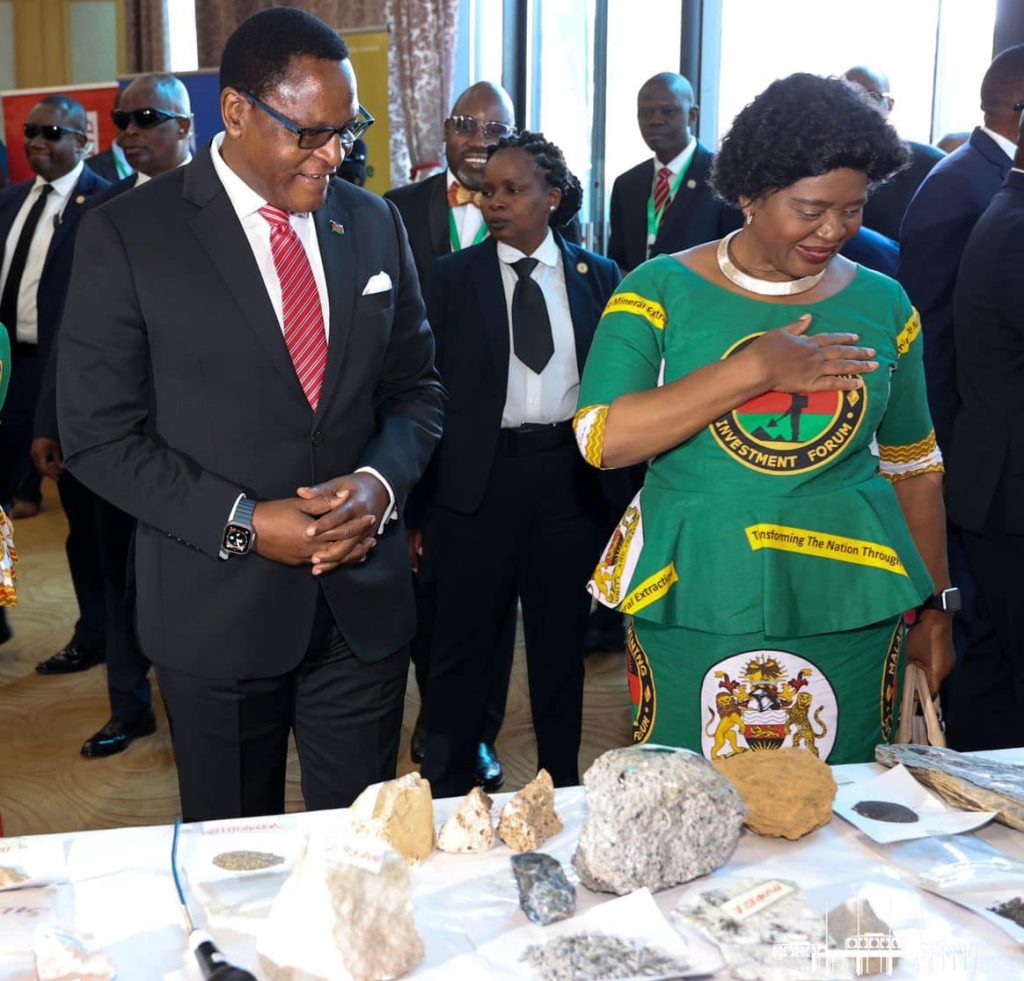Malawi dared on mining potential
The African Mineral Strategy Group has urged Malawi to play a leading role in financing exploration of mineral resources in the country to boost the sector and reap more.
Speaking during the official opening of the inaugural Mining Investment Forum in Lilongwe yesterday, African Mineral Strategy Group secretary general Moses Engadu said African governments, including Malawi need to invest in exploration activities to know the value and location of the minerals and not leave it to foreign companies.

“We must stop flying behind and relying on other people,” he said.
Although mining is one of the priority areas under the industrialisation pillar in Malawi’s bid to achieve the upper-middle income status by 2063, little resources are allocated to the sector, a development which can threaten its development and hinder its potential growth.
Mining, which is part of the Agriculture, Mining and Tourism (ATM strategy), is touted to grow the economy in the short to medium-term for the country to achieve the lower-middle income status by 2030.
Speaking on the sidelines of the forum, Standard Bank Malawi plc managing director Phillip Madinga said he was upbeat about the sector’s potential as evidenced by how Kayelekera Uranium Mine pushed economic growth rate to above five percent when it was operational.
To revamp the sector, he said there are obstacles that need to be addressed.
Said Madinga: “The mining sector requires reliable energy and infrastructure to support the mining activities. Secondly, we need to do things very quickly. We need to kill bureaucracy. We have several mining development agreements that are under negotiation, we need to address that.
“Thirdly, we need the private sector, not just banks, to work in collaboration with government so that we can get this fully exploited. And lastly, government has to provide an enabling environment to bring in investors.”
Several speakers at the forum emphasised the need for Malawians to take the leading role in financing mining activities, starting from exploration, extraction and processing of the minerals. They noted that most of the financing of mining projects is being done by Australians and British pensioners.
Currently, these activities are being done by foreign mining companies, largely, with no public financing while donors, especially the World Bank finance the aerial geo physical survey that provided a general picture of the mineral composition of the country’s soils.
On his part, South Sudanese Minister of Minerals Martin Gama Abucha said African countries need to invest in infrastructure to unlock the sector’s potential , insisting on value addition as the ultimate approach to ensure more jobs and wealth are created.
Speaking on behalf of mining companies operating in Malawi, Akatswiri Resources chairperson Hilton Eneya Banda decried time taken to conclude mining development agreements, stressing the need to develop infrastructure to support mining activities.
“Malawi stands to lose out if this forum and all these efforts do not create a conducive environment for mining activities to roll out,” he said.
Banda emphasised the need to create a vehicle through which Malawians can be mobilising resources to finance mining investment to encourage local participation.
Meanwhile, in its 2024 Malawi Government Annual Economic Report, Treasury projects the sector to experience significant growth in 2024 and 2025, with a forecast of 5.8 percent and 6.7 percent, respectively, driven by the Ministry of mining’s efforts to formalise the Artisanal and Small-scale Miners Act, which is anticipated to boost the production of gemstones and other minerals in 2024.





